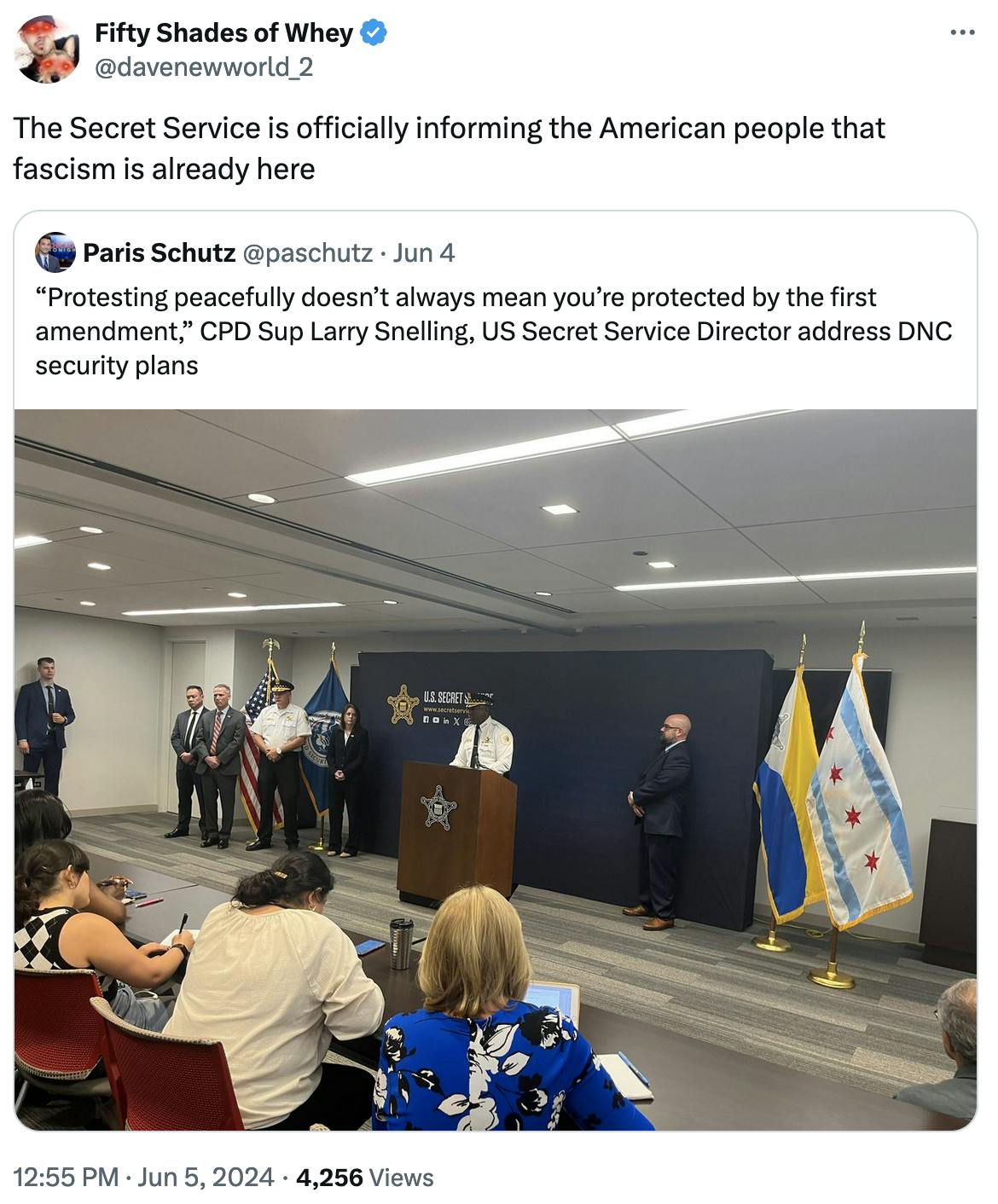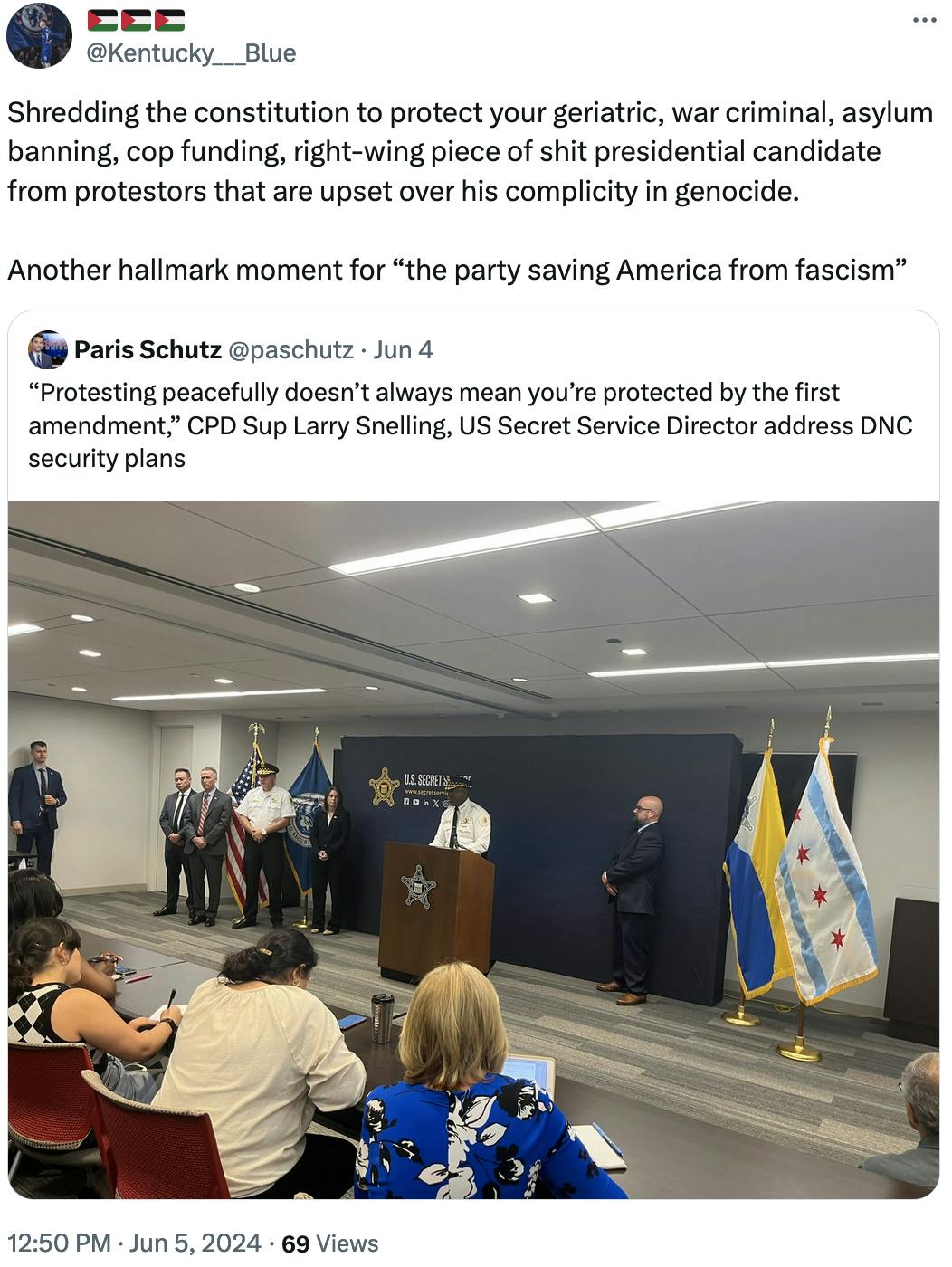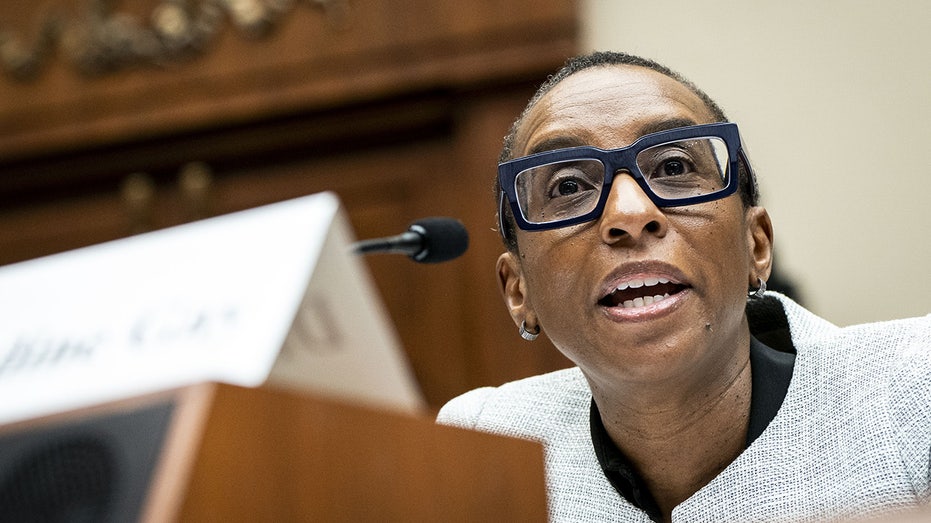Chicago Police Chief Gives Ominous Warning on DNC Protests
During a briefing on Tuesday about security plans ahead of this summer’s Democratic National Convention in Chicago, Police Superintendent Larry Snelling told reporters, “Protesting peacefully doesn’t always mean you’re protected by the First Amendment.” His comment quickly sparked confusion and concerns of police repression for anticipated large-scale protests outside the DNC.The comment came in a larger conversation where Snelling also hinted at changes to Chicago police’s mass arrest policy. “Mass arrest is a last resort,” Snelling said. “But we know the realities of these types of situations, especially when the number of people we’re expecting to converge upon Chicago is inevitable that there is a possibility for vandalism. There is a possibility for violence, and we are prepared to deal with that.”Per WQAD, more than 50 groups have indicated plans to protest the DNC, and Chicago police have denied permit requests for protests near the venue. Groups whose permits were denied reportedly plan to sue and have vowed to march regardless.Fox 32, which first reported the statements, followed up to note Snelling was speaking to acts of civil disobedience. Snelling’s comments, initially shared without context, continued: “First Amendment protection is only there if you’re not committing a crime. You can be acting out peacefully and still breaking the law. If you sit in a roadway, or you’re blocking a venue or private property, and you refuse to leave, those are crimes.”The First Amendment grants “the right of the people peaceably to assemble.” However, police departments across the country have exploited local laws to violently repress recent mass protests against genocide. In New York City, for example, the NYPD has frequently restricted pro-Palestine protests to sidewalks, making violent arrests on protesters who spill out into the street or for using megaphones without a permit.

During a briefing on Tuesday about security plans ahead of this summer’s Democratic National Convention in Chicago, Police Superintendent Larry Snelling told reporters, “Protesting peacefully doesn’t always mean you’re protected by the First Amendment.” His comment quickly sparked confusion and concerns of police repression for anticipated large-scale protests outside the DNC.

The comment came in a larger conversation where Snelling also hinted at changes to Chicago police’s mass arrest policy. “Mass arrest is a last resort,” Snelling said. “But we know the realities of these types of situations, especially when the number of people we’re expecting to converge upon Chicago is inevitable that there is a possibility for vandalism. There is a possibility for violence, and we are prepared to deal with that.”
Per WQAD, more than 50 groups have indicated plans to protest the DNC, and Chicago police have denied permit requests for protests near the venue. Groups whose permits were denied reportedly plan to sue and have vowed to march regardless.
Fox 32, which first reported the statements, followed up to note Snelling was speaking to acts of civil disobedience. Snelling’s comments, initially shared without context, continued: “First Amendment protection is only there if you’re not committing a crime. You can be acting out peacefully and still breaking the law. If you sit in a roadway, or you’re blocking a venue or private property, and you refuse to leave, those are crimes.”
The First Amendment grants “the right of the people peaceably to assemble.” However, police departments across the country have exploited local laws to violently repress recent mass protests against genocide. In New York City, for example, the NYPD has frequently restricted pro-Palestine protests to sidewalks, making violent arrests on protesters who spill out into the street or for using megaphones without a permit.



